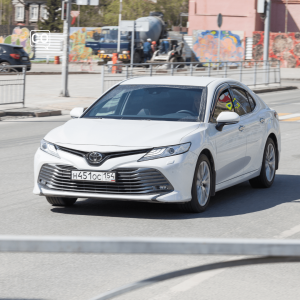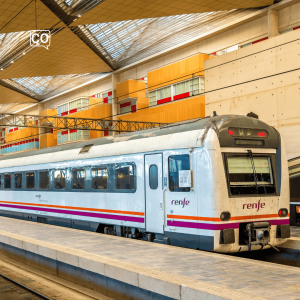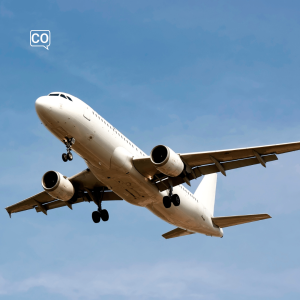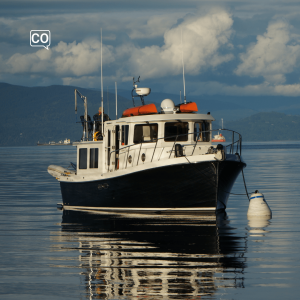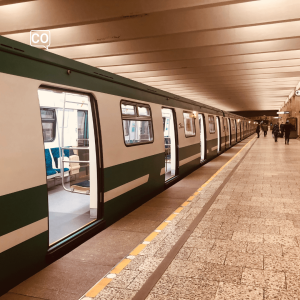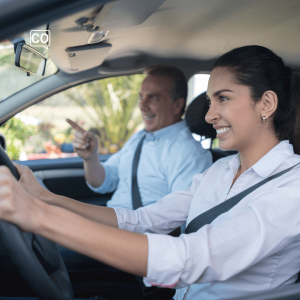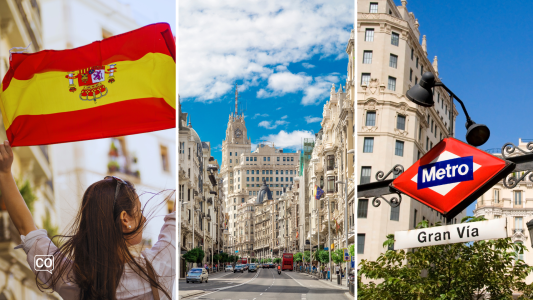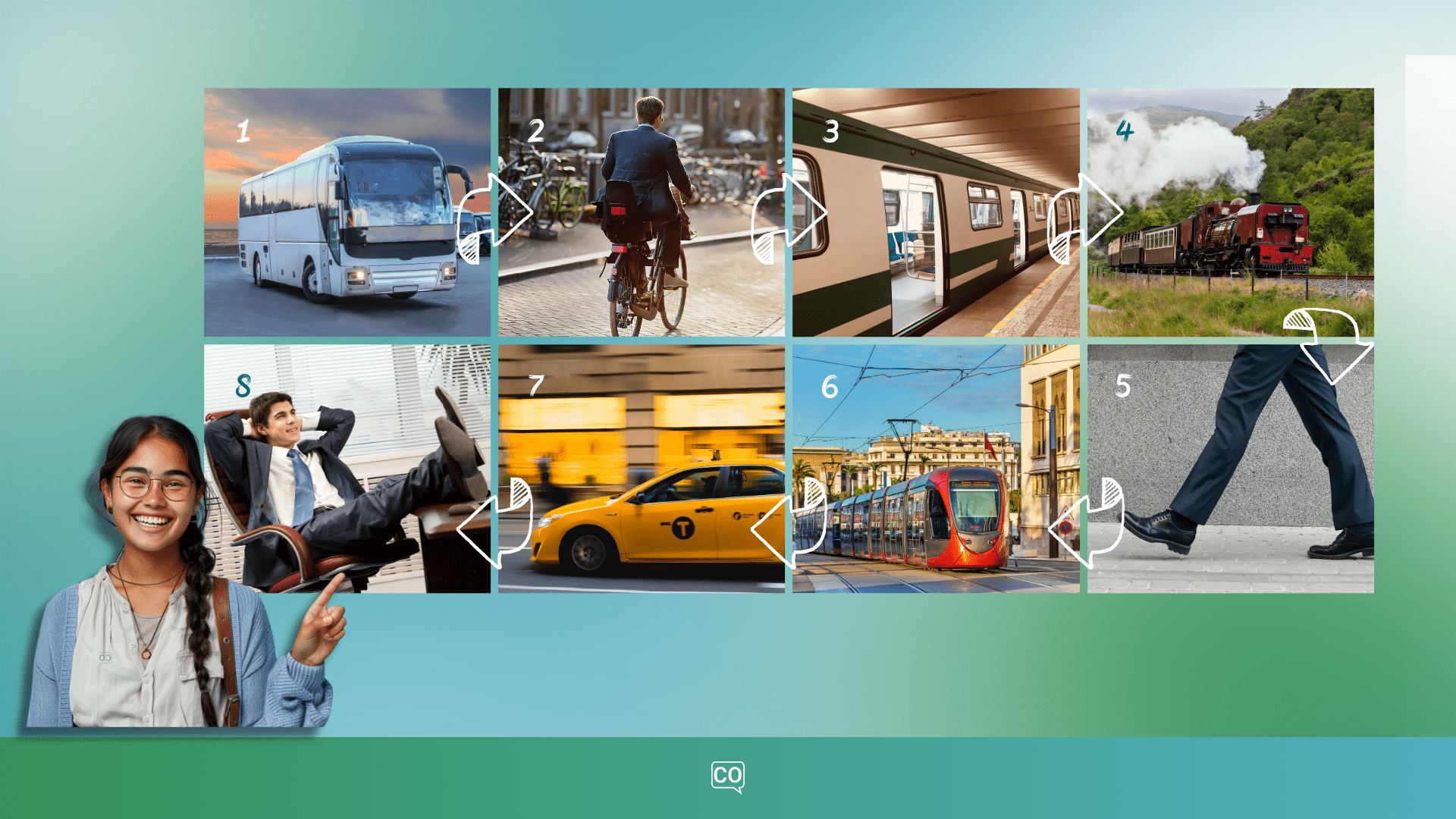Transporte

Learning goals:
- Aprende a usar el transporte público (Learn how to use the public transportation)
- Diferentes formas de transporte (Different ways of transportation)
- Preposiciones de lugar: movimiento y ubicación (Prepositions of place: movement and location)
- El tren de alta velocidad: el AVE de España (The high-speed train: Spain's AVE)
Learning module 6 (A1): La ciudad y el pueblo (The city and the village)
Recap exercises of the previous lesson
Teaching guidelines +/- 60 minutes
Core vocabulary (14)
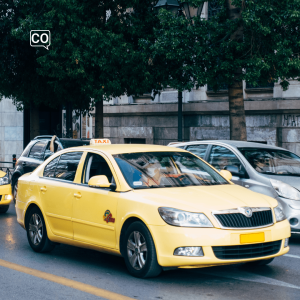
Voy a coger el taxi a la oficina de correos.
(I am going to take the taxi to the post office.)
El taxi
(The taxi)
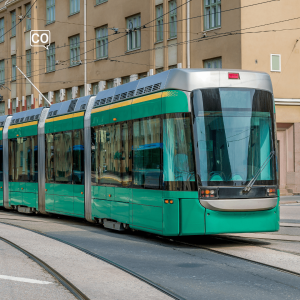
Vamos a coger el tranvía para ir a la universidad.
(We are going to take the tram to go to the university.)
El tranvía
(The tram)

Yo me voy al museo con mi amiga temprano.
(I am leaving to the museum with my friend early.)
Irse
(To leave)
Listening materials
Our listening materials implement the verbs, vocabulary and grammar topics of this lesson. Audio and video available!
A1.42.1 Diálogo: Viaje a la ciudad
Spanish A1.42.1 Trip to the city
Pedro y Ana hablan sobre cómo ir a la ciudad. Usan diferentes transportes como el tranvía, el autobús y el tren.
(Pedro and Ana talk about how to go to the city. They use different transports like the tram, the bus, and the train.)
Teaching guidelines +/- 15 minutes
A1.42.2 Gramática: Preposiciones de lugar: movimiento y ubicación
Spanish A1.42.2 Prepositions of place: movement and location
(Prepositions are words that indicate the position or location of an object, person, or place in relation to others.)
Teaching guidelines +/- 15 minutes
A1.42.3 Cuento corto: El viaje de Sofía.
Spanish A1.42.3 Sophia's trip.
Sofía recorre España utilizando varios medios de transporte para explorar ciudades y disfrutar de sus paisajes.
(Sofía travels around Spain using various means of transport to explore cities and enjoy their landscapes.)
Teaching guidelines +/- 15 minutes
A1.42.4 Cultura: El tren de alta velocidad: el AVE de España
Spanish A1.42.4 The high-speed train: Spain's AVE
El AVE es el tren de alta velocidad en España. Es famoso por su rapidez y conecta ciudades como Madrid y Barcelona desde 1992.
(The AVE is the high-speed train in Spain. It is famous for its speed and has connected cities like Madrid and Barcelona since 1992.)
Teaching guidelines +/- 10 minutes
Exercises
These exercises can be done together during conversation lessons or as homework.
Exercise 1: Find the words
Instruction: Find the words, mark them and make sentences with the words.
Show answers Show hintsHints
To drive , The airplane , To take , The bus , The subway , The bicycle
Answers
Score: 0/6
| Conducir | (To drive) |
| El metro | (The subway) |
| El autobús | (The bus) |
| La bicicleta | (The bicycle) |
| El avión | (The airplane) |
| Coger | (To take) |
Exercise 2: Reorder sentences
Instruction: The words in these sentences have been shuffled! Sort them so that they make a valid sentence again and translate.
Show answers Show translationExercise 3: Translate and make sentences
Instruction: Translate the words and phrases below and use it in a conversation or text.
Show answersExercise 4: Translate and use in a sentence
Instruction: Translate and say the word out loud. Use the word in a sentence.
Show translation|
1.
Coger
|
(To take) |
|
2.
El avión
|
(The airplane) |
|
3.
Conducir
|
(To drive) |
|
4.
La bicicleta
|
(The bicycle) |
|
5.
El coche
|
(The car) |
Exercise 5: Conjugación verbal
Instruction: Choose the correct word, read the sentence out loud and translate.
Show answers Show translationIrse (Presente, indicativo), Volar (Presente, indicativo), Coger (Presente, indicativo)
1. Ellos ... al gato con cuidado.
2. Vosotros ... temprano hoy.
3. Yo ... a madrid mañana.
4. Yo ... al museo con mi amiga temprano.
5. Ella ... la bicicleta para ir al trabajo.
Exercise 6: Prepositions of place: movement and location
Instruction: Choose the correct word, read the sentence out loud and translate.
Show answers Show translationpor, desde, en, hacia, a, sobre
1. Caminamos ... el parque.
2. Vamos ... coche a la playa.
3. Voy ... Madrid mañana.
4. Vengo ... la tienda.
5. Conducimos ... el norte en coche.
6. Voy ... autobús al trabajo.
7. El avión vuela ... las montañas.
8. Paseamos ... la ciudad a pie.
Exercise 7: Translate and make sentences
Instruction: Translate the words and phrases below and use it in a conversation or text.
Show answersConversation exercise
Teaching guidelines +/- 10 minutes
- Explica las formas de transporte que Juan toma antes de llegar a su oficina. (Explain the ways of transportation that Juan takes before arriving in his office.)
Example phrases:
- Juan coge el autobús. (Juan takes the bus.)
- Después de eso,... (After that,...)
- ...
Appendix 1: Extended vocabulary table
Core vocabulary
(14):
Verbs: 4,
Nouns: 9,
Sentences / word combination: 1
Context vocabulary:
13
| Spanish | English |
|---|---|
| A | To |
| A pie | On foot |
| Coge | Takes |
| Cogemos | Do we catch |
| Cogen | They take |
| Coger | To take |
| Conducir | To drive |
| Conduzco | I drive |
| Desde | From |
| El autobús | The bus |
| El avión | The airplane |
| El barco | The boat |
| El coche | The car |
| El metro | The subway |
| El taxi | The taxi |
| El tranvía | The tram |
| El tren | The train |
| En | We go by car to the beach. |
| En tranvía | By tram |
| Hacia | Towards |
| Irse | To leave |
| La bicicleta | The bicycle |
| Pie | Foot |
| Por | Through |
| Sobre | Over |
| Transporte | Transport |
| Volar | To fly |
Appendix 2: Verb conjugation tables for this lesson
Coger (to take)
Exercises and examples phrases
- yo cojo I take
- tú coges you take
- él/ella coge he takes
- nosotros/nosotras cogemos we take
- vosotros/vosotras cogéis you take
- ellos/ellas cogen They take
Volar (to fly)
Exercises and examples phrases
- yo vuelo I fly
- tú vuelas you fly
- él/ella vuela he/she flies
- nosotros/nosotras volamos we fly
- vosotros/vosotras voláis you fly
- ellos/ellas vuelan They fly
Irse (to leave)
Exercises and examples phrases
- yo me voy I am leaving
- tú te vas You leave
- él/ella se va He/she leaves
- nosotros/nosotras nos vamos we are leaving
- vosotros/vosotras os vais You all leave
- ellos/ellas se van They leave
Exercise: Verb conjugation
Instruction: Choose the correct word, read the sentence out loud and translate.
Show answers Show translationCoger (Presente, indicativo), Irse (Presente, indicativo), Volar (Presente, indicativo)
1. Tú ... a la biblioteca a leer un libro.
2. Tú ... por todo el mundo
3. Él ... a otro país por la noche.
4. Ellos ... a barcelona el domingo.
5. Vosotros ... temprano hoy.
